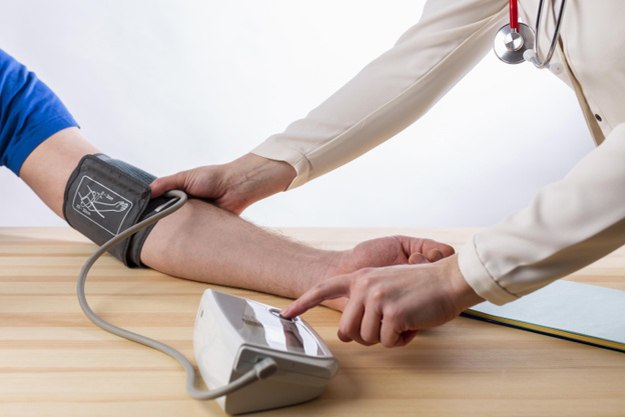Normal blood pressure is an important element to lead a healthy life. The healthy ideal blood pressure reading comes between 90/60 mm Hg and 120/80 mm Hg.
Blood pressure is a significant indicator used to assess the general health of an individual. However, uncontrollable blood pressure affects every aspect and adds complexity to our lives.idu
In addition, the global COVID-19 pandemic situation has triggered stress and anxiety among individuals. It leads more people to experience high blood pressure. This correlation between pandemic and high blood pressure has elevated severe risks leading to serious illness.
Therefore, it is important to understand blood pressure and related concepts. Let’s proceed.

What is Blood Pressure?
Blood pressure refers to the pressure of circulating blood against the walls of blood vessels as the heart pumps blood. When heart muscles are contracted, it generates a force. It causes pressure to rise in your blood vessels, which drives blood flow around the body. It continually supplies oxygen and nutrients to organs.
Blood Pressure Numbers
When blood pressure is measured, you get introduced with two numbers, which is a top number and a bottom number. The first one is the systolic blood pressure (top number). It is the pressure as the heartbeats. The other one is diastolic blood pressure (bottom number), which is the measurement as the heart relaxes between beats.
Measurement
Blood pressure is measured in mmHg, which means millimeters of mercury. It is measured by an automatic digital device that includes a cuff wrapped around the upper arm. However, doctors prefer the use of a stethoscope and a sphygmomanometer, which provides accurate readings.
Blood pressure measurements come under the following categories:
- Blood Pressure Normal: Ideal blood pressure for a healthy person is considered between 90/60 mm Hg and 120/80 mm Hg. It could be considered as healthy blood pressure and you are at the least risk of heart disease and strokes.
- Elevated: When blood pressure readings consistently range from 120-129 for systolic and less than 80 for diastolic. People dealing with elevated blood pressure are likely to develop high blood pressure.
- Stage 1 hypertension: When blood pressure readings consistently range from 130-139 for systolic or between 80-89 for diastolic. Doctors prescribe lifestyle changes and medications in stage 1 hypertension cases.
- Stage 2 hypertension: When blood pressure readings are consistently ranging at least 140 for systolic or at least 90 mm Hg for diastolic. Medical professionals prescribe lifestyle changes and medications in stage 2 hypertension cases.
- Hypertensive crisis: If your blood pressure readings exceed 180/120 mm Hg, you need to contact medical professionals.
If you experience signs of organ damage such as chest pain, numbness, fatigue, or back pain. You should immediately consult with your doctor.
High and Low Blood Pressure
High blood pressure, also called hypertension, causes severe health risks. It is also referred to as a ‘silent killer’ because it often shows no symptoms. High blood pressure involves several risks. It includes the hardening of the arteries, kidney disease, cardiovascular disease, or atherosclerosis. With the consumption of alcohol, smoking/vaping increases the risk of high blood pressure. Family history in blood pressure, age, and race also has a significant role to play in high blood pressure.
In lower blood pressure, which is also known as hypotension, can cause serious health issues. It includes dizziness, fatigue, nausea, dehydration, blurred vision, fainting (syncope), or pale skin. A sudden drop in blood pressure reduces the adequate supply of oxygen to the brain. But, a sudden drop in blood pressure could be dangerous.
Takeaway
Maintaining your normal blood pressure is a crucial task. However, certain factors help to stabilize normal blood pressure and minimize risk factors. It includes lifestyle habits, exercising regularly, avoiding alcohol consumption, avoiding smoking, and reducing sodium in diet. If you are overweight, try to lose a few pounds as high weight increases the risk of high blood pressure. With medications and lifestyle changes, you can bring it under control.
You should also check your blood pressure readings regularly. It will help you to implement changes that could reduce life-threatening risks and maintain normal blood pressure. Hence, it is necessary to consult healthcare professionals. It will help you to take proper measures to avoid any blood pressure complications.






